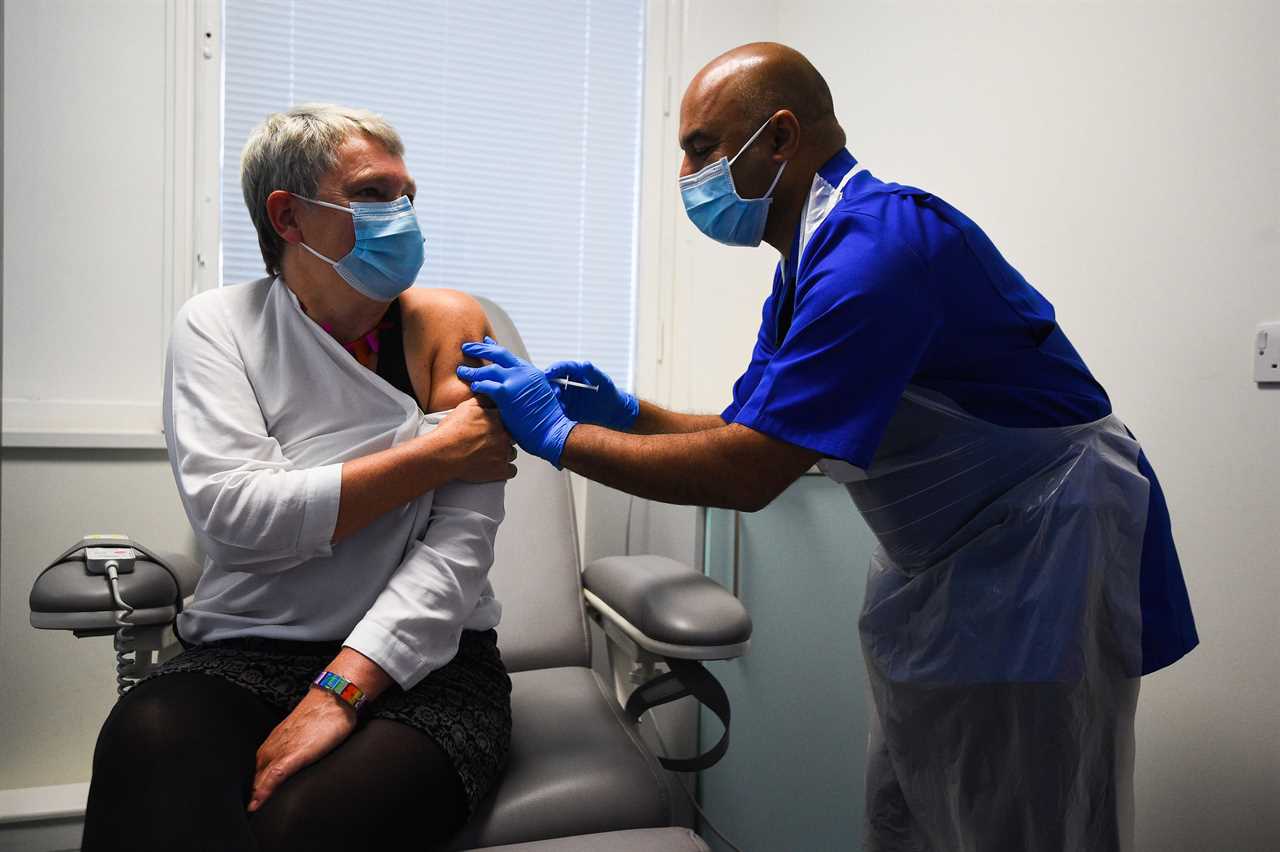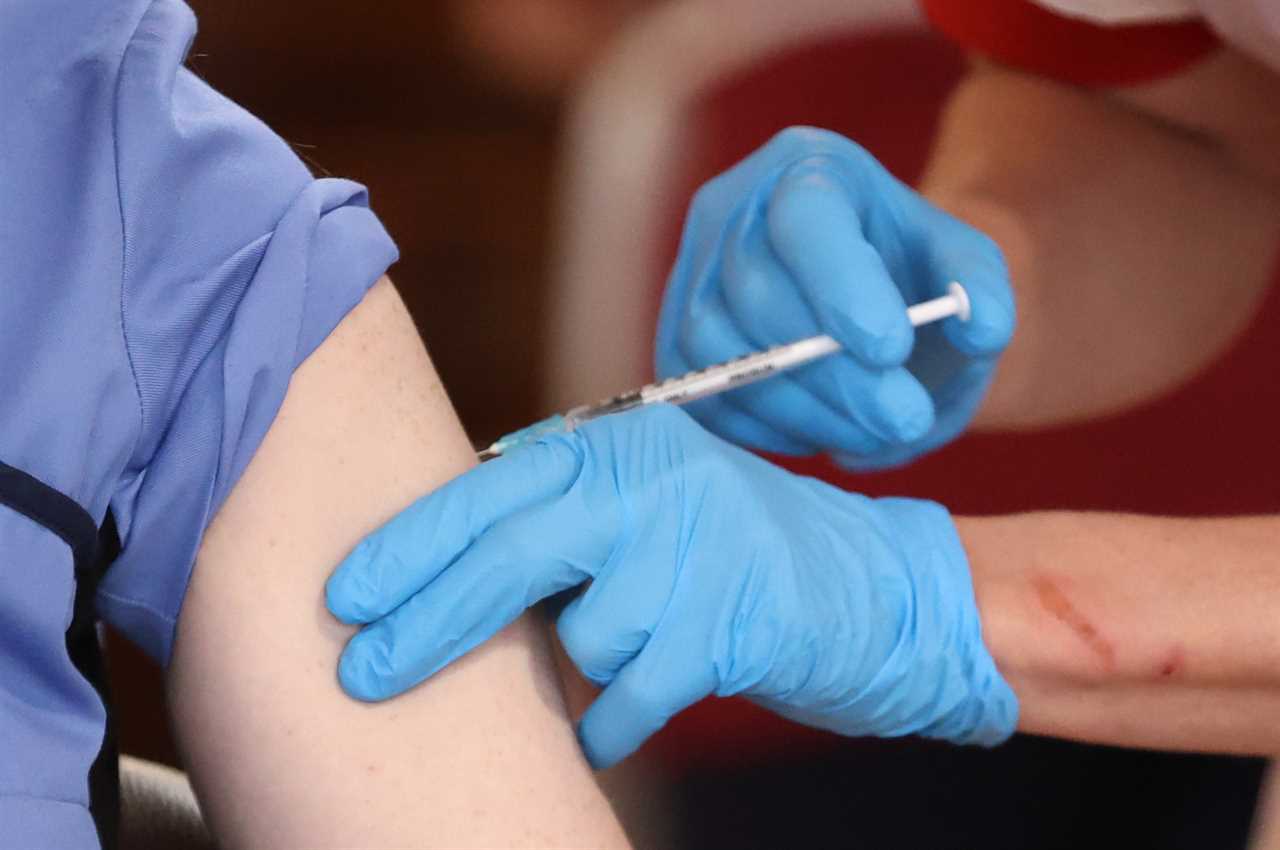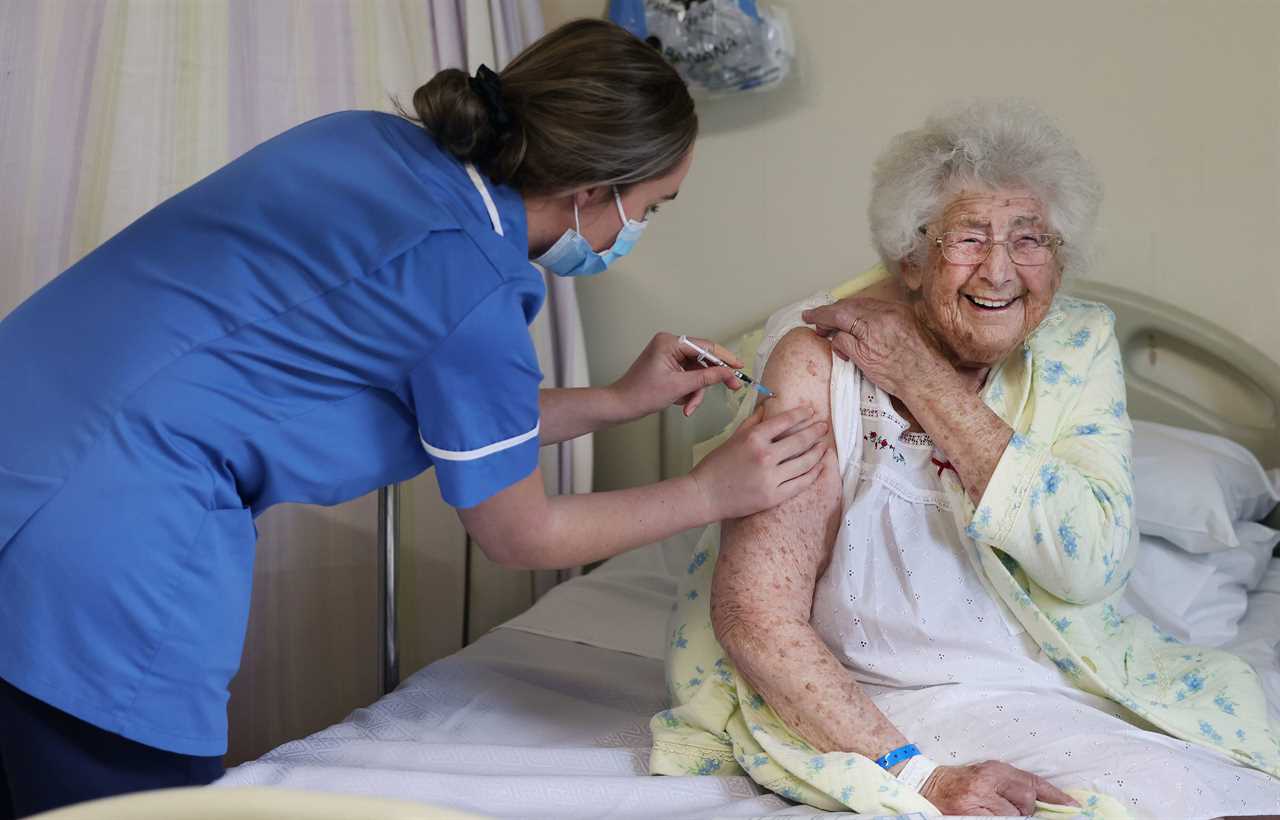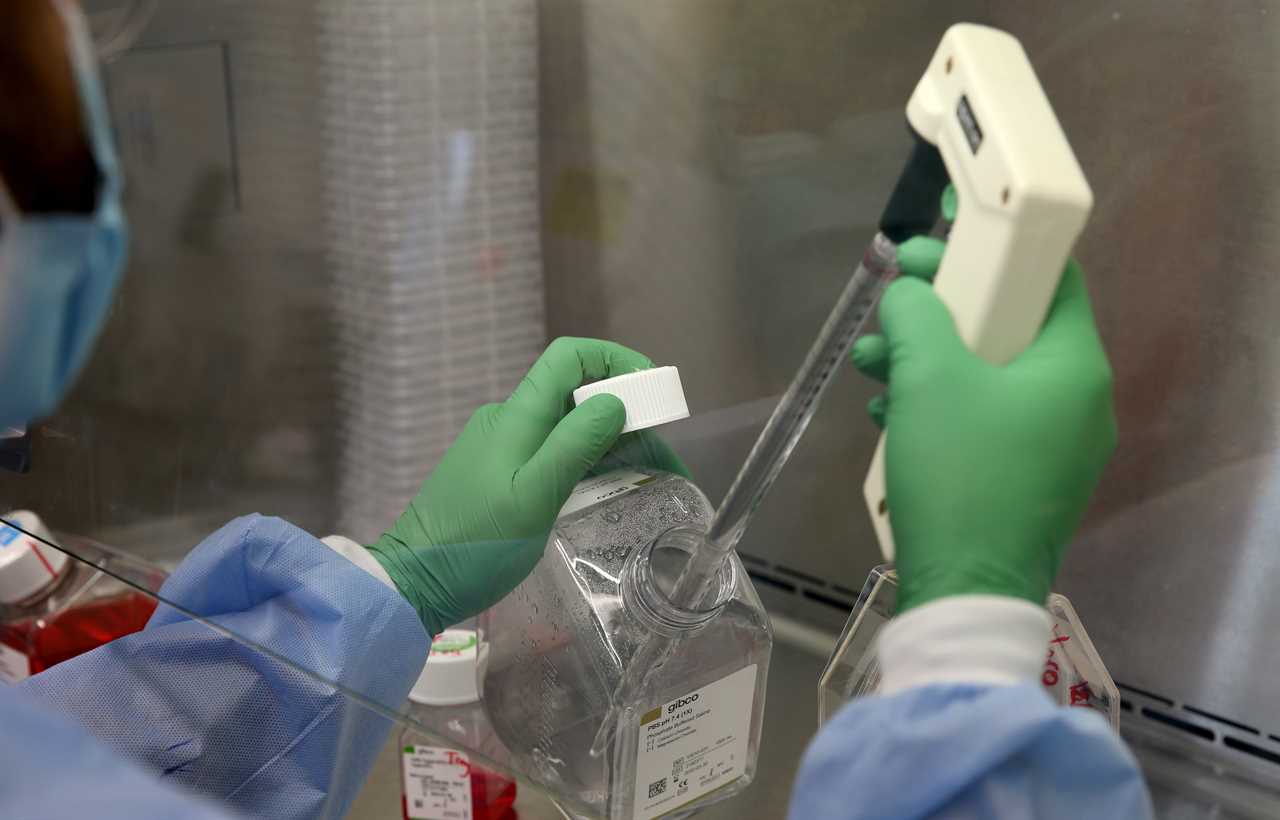GP practices will prioritise sick and elderly ethnic minority patients for the coronavirus vaccine from next week.
But dozens of GPs in England have decided to opt out of the Pfizer jab rollout reportedly due to workload issues.


The first Pfizer/BioNTech jabs began to be administered at hospital sites on Tuesday.
Health Secretary Matt Hancock told MPs on Tuesday: “From next week we will expand deployment to start vaccinations by GPs and we will vaccinate in care homes by Christmas.
“As more vaccines come on stream in the new year, we will open vaccination centres in larger venues, such as sports stadiums and conference halls.”
Stephen Powis, the NHS England medical director, said: “From next week, we’ll see GP surgeries join up across the country to support hospitals in the delivery of the jab, followed by larger vaccination centres in key locations nationwide.”
According to a report in The Guardian, dozens of GP practices have chosen not to join the coronavirus vaccination programme due to concerns around already-heavy workloads.
HEAVY WORKLOADS
Other concerns expressed by GPs include staff shortages and the impact on patients if other services have to be cut back, the newspaper reported.
The Guardian said some 100,000 patients – of the more than 60 million registered at GP practices across England – would not be able to get the Covid-19 vaccine from their family doctor.
It is understood that if a person’s local GP practice is not delivering coronavirus vaccines they will be able to get the jab at other locations such as hospital hubs and at pharmacies from the end of January.
The Royal College of GPs described the vaccine rollout as an “enormous challenge” in the context of the work doctors are already doing amid the pandemic, which includes an expanded winter flu jab programme.
The organisation said while there has been an “excellent response” from many practices, it understands why some “have felt like they cannot sign up”.

The Pfizer vaccine does present some logistical challenges, as it needs storage temperatures of minus 70C to minus 80C before being distributed and it can only be moved four times within that cold chain before being used.
Professor Martin Marshall, chairman of the RCGP, said: “It is going to be an enormous challenge given the workload and workforce challenges GPs and our teams are currently working under, delivering the expanded flu vaccination programme, as well as the vital services our patients rely on us for – and the significant logistical issues associated with delivering the Pfizer/BioNTech vaccine at a community level.
“Given these challenges, we understand why some practices have felt like they cannot sign up, but there has been an excellent response from the large number of practices able and wanting to be involved.”
LOGISTICAL ISSUES
He said around 280 primary care settings had been identified for the first phase of the primary care rollout and were preparing to vaccinate patients early next week.
A spokeswoman for the NHS said: “As set out and supported by the BMA, general practices will deliver the vaccine from nominated sites within primary care networks, where it is safe and practical to do so, and there has been a fantastic response from GPs across England signing up to do so.
“Given the well-known logistical challenges of delivering this particular vaccine, GPs like others across the NHS are now responding rapidly to make arrangements for this to happen.”
Boris Johnson has urged people to take up the jab if offered it by the NHS, adding: “To all those who are scared (of getting vaccinated) – don’t be.
“You have seen people take the vaccine this morning in large numbers. There’s nothing to be nervous about.”
The PM visited the vaccination centre at Guy’s Hospital in London on Tuesday to meet some of the first people who received the vaccine there.







